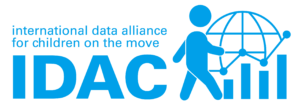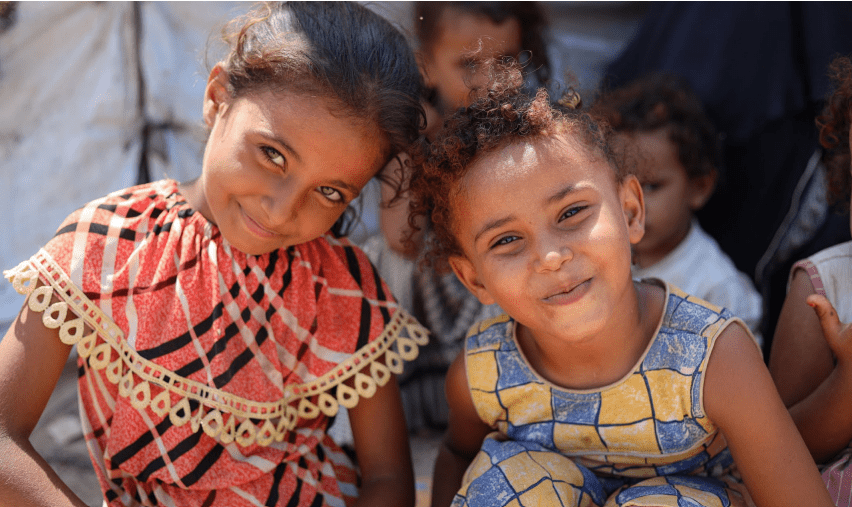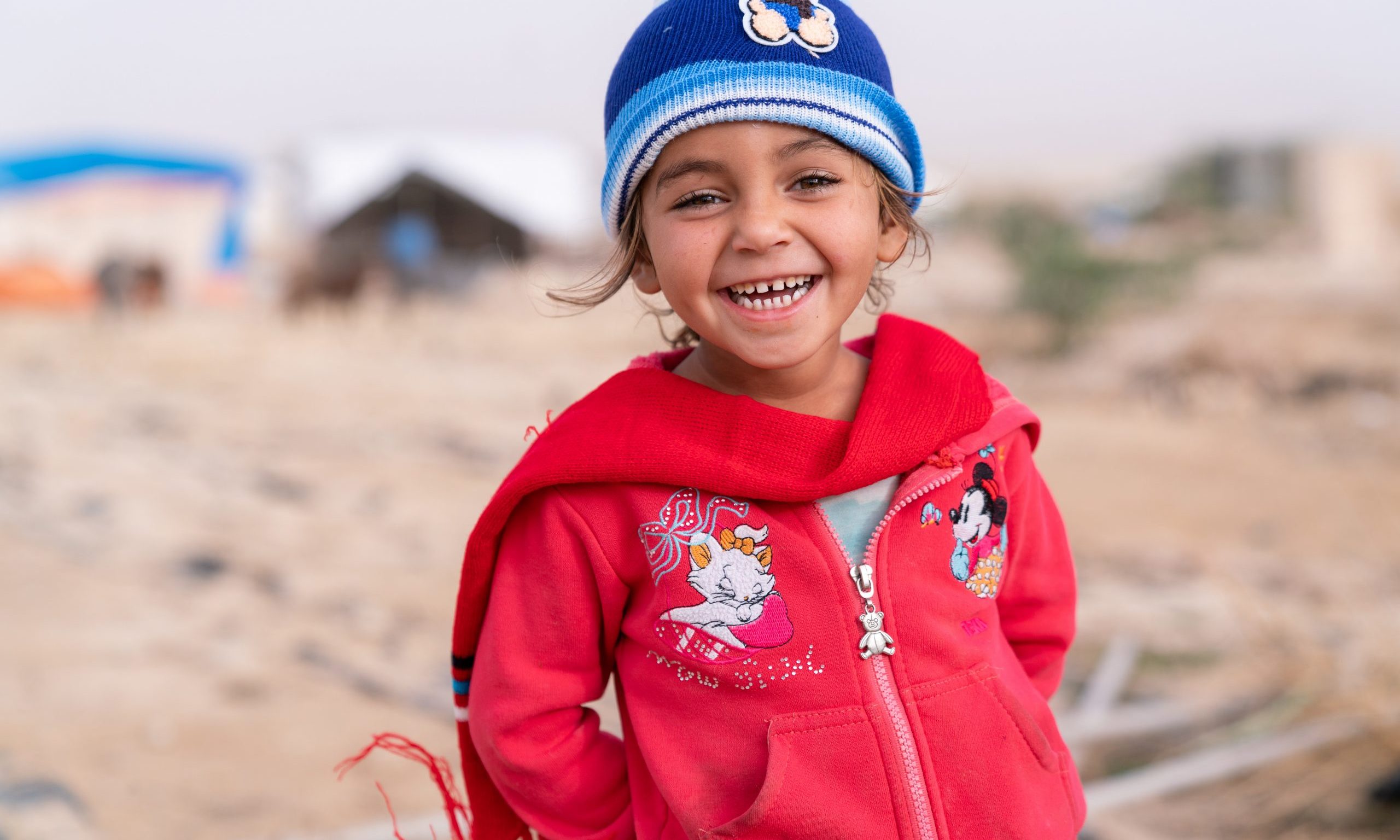There are more children on the move around the world than ever before, with a record 35.5 million international child migrants and 36.5 million forcibly displaced children by the end of 2021. These children face many serious risks and challenges, but are often missed in data collection efforts. To address these challenges, the International Data Alliance for Children on the Move (IDAC) was established in 2020. IDAC is a global coalition of experts representing national statistical offices, migration-relevant line ministries, international and regional organizations, NGOs, academia and civil society organizations. Its mission is to improve statistics and data on migrant and displaced children to support evidence-based policymaking that protects and empowers them.
IDAC is renewing and expanding the 2018 call to action Protecting children on the move starts with better data issued by UNICEF, UNHCR, IOM, Eurostat and OECD. Building on its achievements to date and in partnership with the Migration Youth and Children Platform (MYCP), a global youth-led organization that facilitates and creates avenues for children and youth to engage in migration policy processes, IDAC urgently calls on United Nations Member States and other key stakeholders to commit to the following declaration:
GLOBAL PLEDGE
Considering the persistent gaps in timely, accurate and disaggregated data for migrant and displaced children despite the heightened risks and vulnerabilities that we know they face;
Considering current and emerging global threats, such as conflict, climate change, food insecurity and health emergencies, that are expected to dramatically increase migration and displacement in the coming decades and exacerbate challenges for vulnerable populations, including children on the move;
Recalling the commitment made in Objective 1 of the Global Compact for Migration (GCM) to collect accurate and disaggregated data as a basis for evidence-based migration policies, as well as in Article 3.3 of the Global Compact on Refugees (GCR) to generate reliable, timely and comparable data to support evidence-based policies, investments and programmes for refugees, in addition to the promise made by United Nations Member States to leave no one behind in achieving the 2030 Agenda for Sustainable Development;
Welcoming Paragraph 70 of the Progress Declaration of the International Migration Review Forum (IMRF), which calls on Member States to “develop a comprehensive strategy for improving disaggregated migration data”;
Reiterating the 2018 call to action, Protecting children on the move starts with better data, issued by IDAC’s founding members – UNICEF, UNHCR, IOM, Eurostat and OECD;
Recalling Article 12 of the Convention on the Rights of the Child and Committee on the Rights of the Child (2002) General Comment 12, which address the rights of children and young people to participate in all matters that affect them, and to have their views given due weight;
Acknowledging the vital role of children and youth in co-creating and leading solutions that improve data and statistics on migration and support evidence-based policymaking.
We call on Member States to COMMIT to:
1. Disaggregate data by age, sex and migratory status, specifically by:
-
-
-
-
-
-
Making efforts to collect exact-age data on migrant and displaced populations to maximize potential use and comparability of data on children on the move;
-
Collecting data on key indicators of migratory status, including place of birth, place of citizenship, legal status (regular or irregular) and displacement status (e.g., refugee, asylum-seeker or internally displaced person);
-
Operationalizing the established standards and frameworks for improving data and statistics in migration and displacement contexts (e.g., Expert Group on Refugee, Internally Displaced Persons and Statelessness Statistics (EGRISS), Expert Group on Migration Statistics (EGMS));
-
Developing a comprehensive strategy for improving disaggregated migration data at local, national, regional and global levels, as highlighted in Paragraph 70 of the IMRF Progress Declaration.
-
-
-
-
-
2. Collect data on key issues related to children on the move, including by:
-
-
-
-
-
-
Collecting data on the social and economic integration of children on the move (e.g., through surveys on labour force, quality of life);
-
Collecting data on children’s access to essential services, including health; education; nutrition; water, sanitation and hygiene (WASH) and child protection;
-
Expanding quantitative and qualitative research on underexplored issues relevant to children on the move, including mixed migration movements, unaccompanied and separated children, missing migrant children, children displaced due to climate change, internally displaced children, children ‘left behind’ by migrating parents and children on the move with disabilities.
-
-
-
-
-
3. Make better use of existing data, and share it, specifically by:
-
-
-
-
-
-
Supporting concerted efforts to develop new norms and practices for sharing data and data integration across sectors and agencies (including administrative data);
-
Sharing data between local, national, regional and global levels, while taking special measures to protect children’s privacy and interests;
-
Exploring and utilizing alternative data sources (e.g., big data, operational data) to better understand and respond to the needs of migrant and displaced children, especially in emergency contexts.
-
-
-
-
-
4. Coordinate data collection efforts within and across borders, including by:
-
-
-
-
-
-
Implementing the Integrated Data Ecosystem Assessment and Strengthening (IDEAS) tool to improve national-level data coordination and data systems;
-
Fostering dialogue and collaboration between and among national statistical authorities and concerned line ministries, as well as humanitarian and development partners, to identify data gaps and propose joint solutions;
-
Promoting the exchange of good practices and lessons learned in strengthening national data capacities for children on the move at regional, continental and global levels;
-
Becoming a member and/or collaborating with the International Data Alliance for Children on the Move (IDAC), a platform for multi-stakeholder sharing of experiences, peer-learning and co-creating solutions to address the pervasive data gaps that harm migrant and displaced children.
-
-
-
-
-
5. Make special efforts to collect and analyse data on children on the move, especially by:
-
-
-
-
-
-
Developing research agendas that address data gaps to better respond to current and emerging issues faced by children on the move;
-
Enhancing the meaningful participation of children and youth, including from marginalized groups, and ensuring their voices are heard in improving national data systems and the data collection process (planning, data collection, analysis, etc.);
-
Ensuring that all data collection efforts are guided by robust frameworks and child-sensitive data collection standards and principles (e.g., the Responsible Data for Children (RD4C) framework);
-
Make systematic financial and technical investments towards efforts to transform data and statistical systems to address child-specific needs.
-
-
-
-
-
Pledge your support
 The International Data Alliance for Children on the Move (IDAC) is a cross-sectoral global coalition comprised of governments (including experts from national statistical offices and migration-relevant line ministries), international and regional organizations, NGOs, think tanks, academics, and civil society. The main objective of IDAC is to improve statistics and data on migrant and forcibly displaced children with the goal to support evidence-based policymaking that protects and empowers them.
The International Data Alliance for Children on the Move (IDAC) is a cross-sectoral global coalition comprised of governments (including experts from national statistical offices and migration-relevant line ministries), international and regional organizations, NGOs, think tanks, academics, and civil society. The main objective of IDAC is to improve statistics and data on migrant and forcibly displaced children with the goal to support evidence-based policymaking that protects and empowers them.


